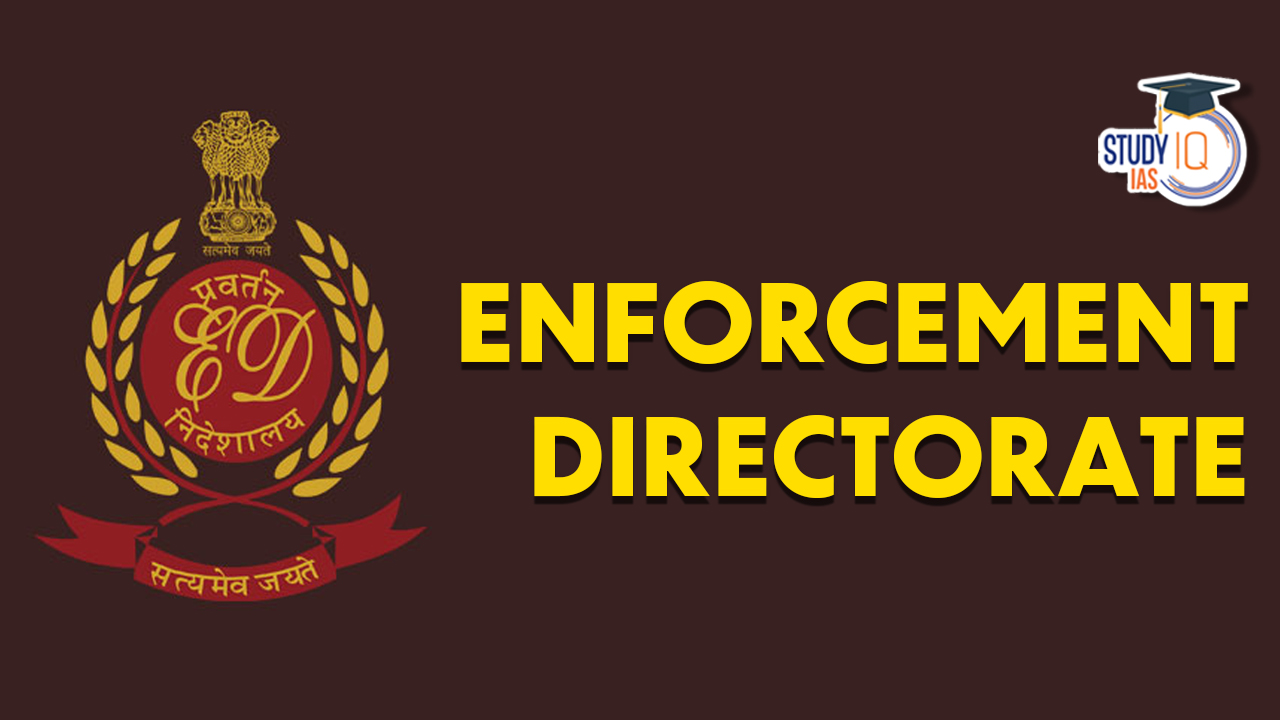Context: The Supreme Court struck down the Union government’s decision to grant two extensions of tenure to the Chief of Enforcement Directorate (ED).
About the Enforcement Directorate (ED)
| About |
|
| Establishment |
|
| Responsibility | ED is a multi-disciplinary organization, and its statutory functions include enforcement of following Acts:
|
| Jurisdiction |
|
| Hierarchy |
|
| Recruitment |
|
| Tenure |
|
Various Concerns Surrounding ED
- Politicization and Targeting of Opponents: There have been allegations that the ED has selectively pursued cases against politicians belonging to opposition parties, raising questions about its impartiality and independence.
- Misuse of PMLA for Ordinary Crimes: There are allegations that the PMLA is being misused to investigate cases that are unrelated to money laundering or serious organized crime.
- Overbroad Powers of ED: The ED’s powers under the PMLA, particularly in terms of search, seizure, investigation, and attachment of assets, have been criticized as being too broad and unchecked.
- Overreach and Powers akin to Policing: Some critics argue that the ED has assumed powers akin to that of a policing agency, leading to a blurring of lines between its investigative role and that of law enforcement agencies like the police.
- Lack of Transparency and Clarity: The Enforcement Case Information Report (ECIR), which is equivalent to the First Information Report (FIR) in regular criminal cases, is not provided to the accused. This lack of transparency raises concerns about due process and the accused’s ability to defend themselves effectively.
- Low Conviction Rate: Despite thousands of cases being registered and arrests made by the ED, the conviction rate under the PMLA remains very low.
- According to the data quoted by the government in Parliament of India, there were zero convictions between 2005 and 2013-14.
- By 2014-15 to 2021-22, out of 888 cases under ED, only 23 cases were under conviction.
- Pre-trial Arrests and Due Process: The ED has been criticized for its emphasis on effecting pre-trial arrests rather than focusing on recovering the proceeds of crime.
- Limited Clarity on Proceeds of Crime Recovery: There are questions about the effectiveness of the ED in recovering the proceeds of crime and redistributing them to victims.
Way Forward
- Oversight Mechanism: Establish an independent oversight mechanism to scrutinize the operations and decisions of the ED, ensuring that investigations are conducted impartially and in compliance with constitutional principles and human rights standards.
- Balance between Investigation and Due Process: Emphasize a fair balance between the investigative powers of the ED and the rights of the accused. Ensuring due process and the right to a fair trial should be prioritized while conducting investigations.
- Enhancing Conviction Rate: investigations can enhance the effectiveness of the ED in countering money laundering and related offenses.
- Increased Coordination: Foster better coordination between law enforcement agencies, such as the Central Bureau of Investigation (CBI) and state police, to ensure efficient handling of cases and avoid duplication of efforts.


 Niveshak Didi Initiative Phase 2 launche...
Niveshak Didi Initiative Phase 2 launche...
 Central Pollution Control Board (CPCB) R...
Central Pollution Control Board (CPCB) R...
 Foreign Contribution Regulation Act (FCR...
Foreign Contribution Regulation Act (FCR...





















